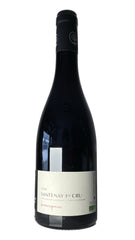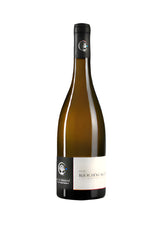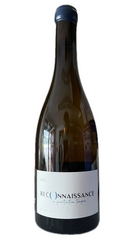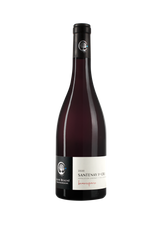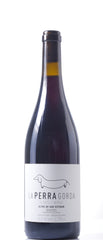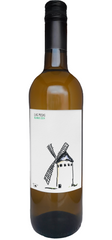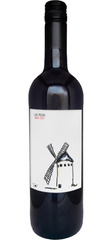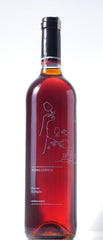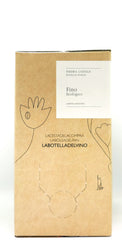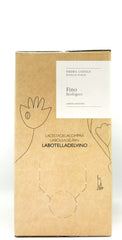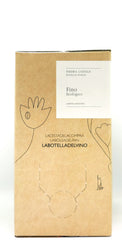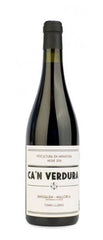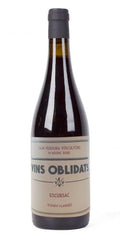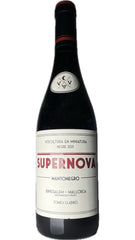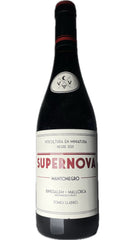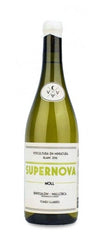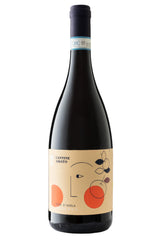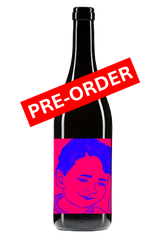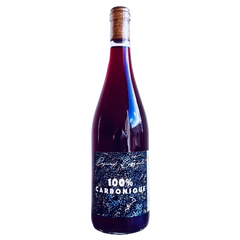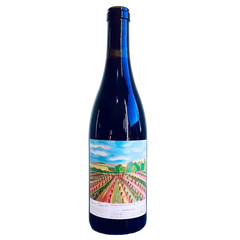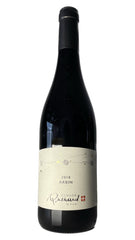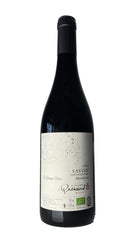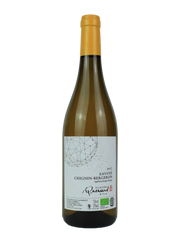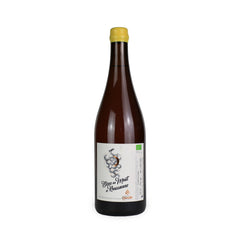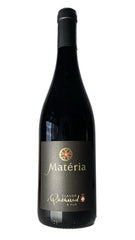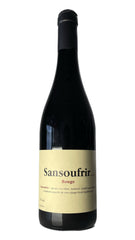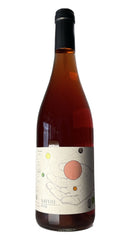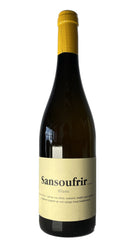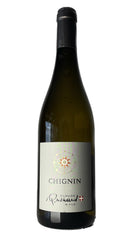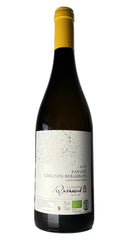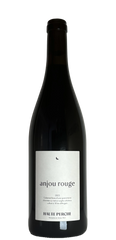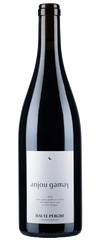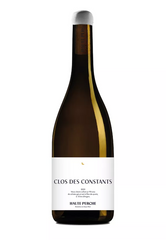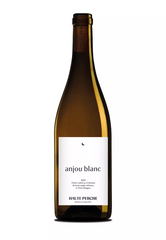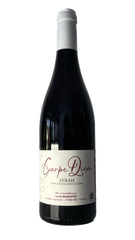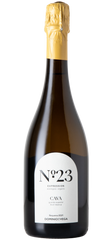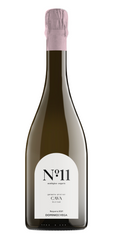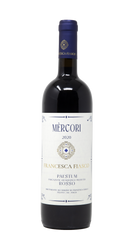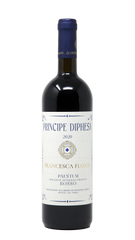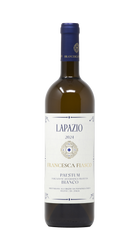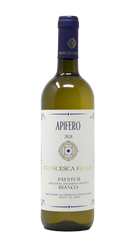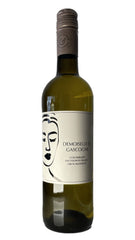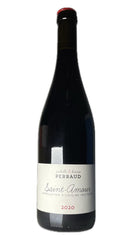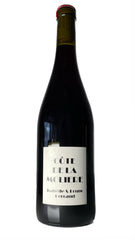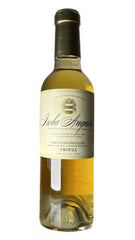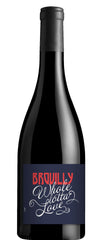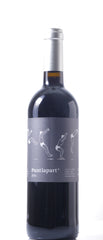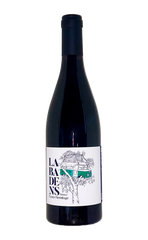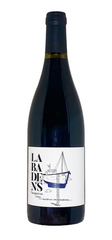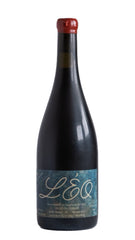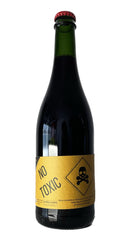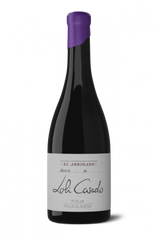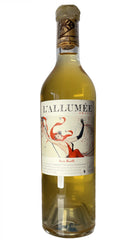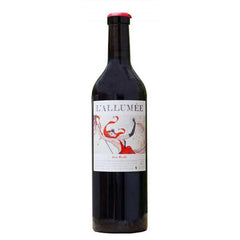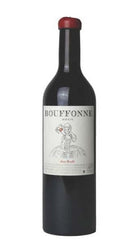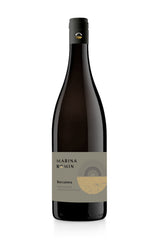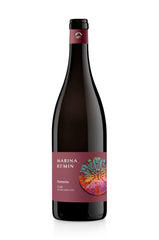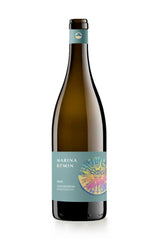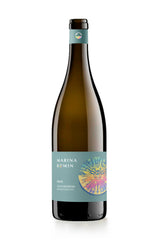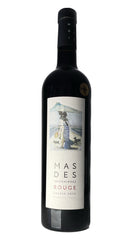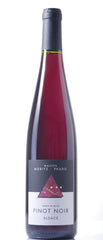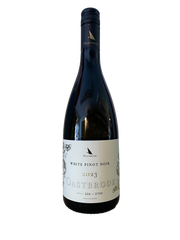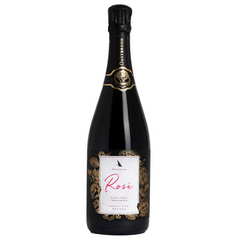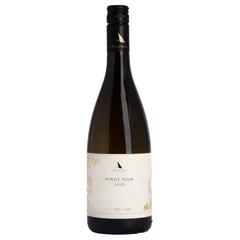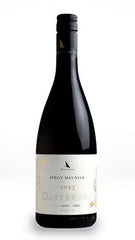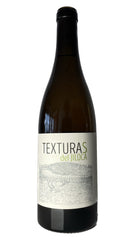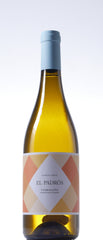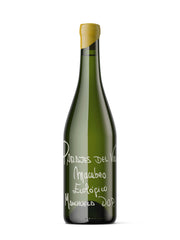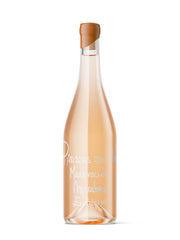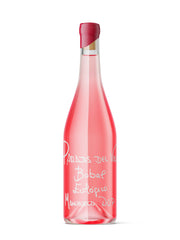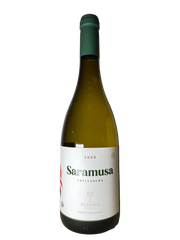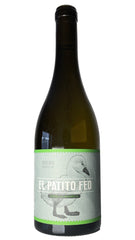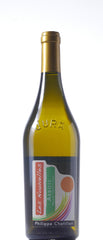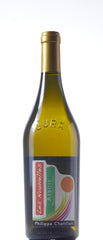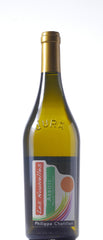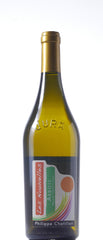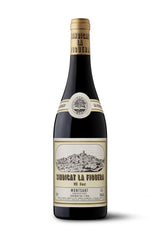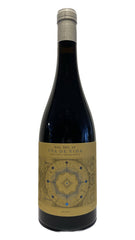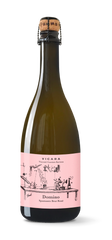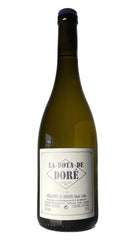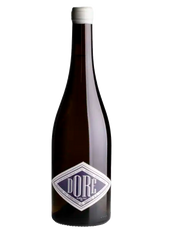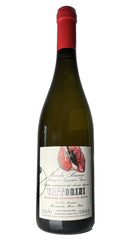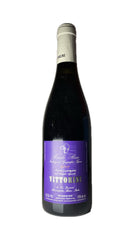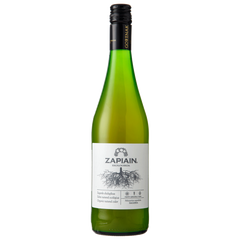France
- Alsace
- Moritz-Prado
- Bordeaux
- Maison Advinam
- Vincent Lacoste
- Champagne
- Christophe Dechannes
- Cotes Catalanes
- Modat
- Gascony
- Haut-Marin
- Jura
- Philippe Chatillon
- Languedoc
- Domaine Coste-Rousse
- Vins des 3 Chateaux
- Luberon
- Mas des Infermieres
- Northern Rhône
- Les Sept Pierres
- Rhône
- Labadens
- Savoie
- Claude Quenard & Fils
Italia
- Campania
- Francesca Fiasco
- Emilia-Romagna
- Ancarani
- Friuli
- Isola Augusta
- La Marche
- Vittorini di Nico Speranza
- Sicily
- Cantine Amato
- Tuscany
- Marina Romin
- Veneto
- De Stefani
- Mongarda
England
- Hampshire
- Exton Park
- Sussex
- Oastbrook Estate Vineyard
España
- Bierzo
- Altos de San Esteban
- Castilla-La Mancha
- Uva de Vida
- Catalayud
- Colas Viticoltores
- Cava
- Dominio de la Vega
- Conca de Barbera
- Vins de Pedra
- Emporda
- La Vinyeta
- Gredos
- Vinadores de Gredos
- Jumilla
- Parajes del Valle
- Mallorca
- Ca'N Verdura
- Manchuela
- Garcia Perez
- Montilla-Moriles
- Bodegas Robles
- Montsant
- Sindicat La Figuera
- Penedes
- Covides
- Priorat
- Clos 93
- Rias Baixas
- Mar de Envero
- Ribeiro
- Pateiro
- Ribera del Duero
- Vinicola la Calera
- Rioja
- Loli Casado
- Ruiz Jimenez
- Rueda
- Menade
- Tarragona
- Oriol Perez de Tudela
- Tierra de Castilla
- Bodegas Gardel
- Valencia
- Finca Enguera
France • Burgundy • @alinebeaune
Aline Beauné
While 2018 marked Aline Beauné’s first solo vintage, she is no stranger to winemaking in the Côte Chalonnaise. For 15 years, she led winemaking at Château de la Crée in Santenay before deciding to branch out on her own. When the Buxy co-operative’s lease on 5 hectares of her family’s 12-hectare Montagny vineyard ended, she seized the opportunity.
Her vines, located in Saint-Vallerin, are split between Aligoté, Bourgogne Blanc, Montagny Villages, Montagny 1er Cru Chazelle and she also has one or two Santenays. Committed to organic conversion, she has eliminated herbicides and chemical rot treatments, instead focusing on preventative care and meticulous vineyard management. She also incorporates select biodynamic preparations to energize the soil.
In the cellar, oak is used with restraint—never exceeding 10% new wood in the 1er Cru—allowing the terroir to shine through. The vineyards’ large pebbles retain heat, enhancing bright tropical fruit flavors, while the porous chalk soils contribute to a concentrated yet beautifully integrated acidity. These wines are electric and vibrant in their youth, with exceptional ageing potential.
Est
2018Size
6haWines
4Soil
Clay, Limestone, MarlProd
15,000 btlsAgri
Organic ConversionBio
Biodynamic PreperationsFerm
Wild and culturedVegan
VeganSulphur
Low SulphurSpain • Bierzo • @altosdesanesteban
Altos de San Esteban
Altos de San Esteban is a relatively new project located in the Bierzo Alto, within the municipality of Torre de Bierzo—recently granted inclusion in the Bierzo DO. The project was born from the vision of four university friends, one of whom inherited just 3 hectares of vines from his father. The higher-altitude vineyards and red clay-rich soils of Bierzo Alto, while distinct from the more traditional Mencía vineyards, provide ideal conditions for later grape maturation, preserving both acidity and freshness.
The winery's name honors the legacy of Manolo’s father, Don Manuel Marqués “Patarita” (1925–2011), a passionate vineyard owner and winemaker who was integral to the region’s wine culture. Don Manuel’s experience, love for winemaking, and guidance were invaluable to the four friends as they embarked on this journey.
In 2019, Fermin Uria joined as winemaker, bringing with him extensive experience from his time at the renowned Bierzo winery, Dominio de Tares, and his long tenure in Ribera del Duero. The winery practices organic viticulture, with spontaneous fermentations and minimal intervention throughout the winemaking process.
Farming is done without certification, and all grapes are hand-harvested. After being destemmed and crushed, the grapes undergo a controlled fermentation on their skins at 25°C for 16 days. The wine is then aged for 5 months in old oak on its fine lees, before being bottled with minimal sulphur.
The wines are crafted from grapes grown on two estates, both included in the Bierzo DO:“La Mendañona” in Torre del Bierzo, about two hectares, planted with the Mencía variety. “La Viña de San Esteban” in San Esteban del Toral (Bembibre), about three hectares, planted with the Godello variety.
Est
we're not sure!Size
3haWines
1Soil
Ferric ClayProd
5,000 btlsAgri
Organic FarmingBio
noFerm
Wild YeastVegan
noSulphur
Low SulphurItaly • Emilia-Romagna • @ancaranivini
Ancarani
Ancarani is a small, family-run winery nestled in the hills of Faenza, Emilia-Romagna, in the hamlet of Santa Lucia. The estate's origins date back to 1934 when Grandfather Pietro, affectionately known as Delmo, purchased the first hectares of land. His vision was clear: to protect, nurture, and share the land’s story with future generations. Today, that legacy is upheld by Claudio Ancarani, who pours his passion and dedication into every aspect of the vineyard and winery.
The estate’s vineyards are situated near the historic fortress of Oriolo, where only native varieties thrive. These include Sangiovese, Burson, Centesimino, Famoso, and Albana—grapes deeply tied to the region’s identity. Ancarani’s approach is rooted in tradition: low-intervention farming, hand-harvesting, and meticulous grape selection to preserve the land’s natural balance and enhance the purity of each wine.
In the cellar, extended macerations allow the wines to fully express the character of their terroir. Sulphite use is kept to a minimum, and biodiversity is prioritised, ensuring that the vineyard remains a thriving, self-sustaining ecosystem. Ancarani produces just under 40,000 bottles each year, spread across nine labels—primarily white wines that reflect the region’s unique characteristics. These are our favourites.
Est
1994Size
20haWines
4Soil
Sand; Calcareous ClayProd
20,000 btlsAgri
Organic FarmingBio
NoFerm
Wild YeastsVegan
YesSulphur
LowFrance • Loire • @batardlangelier
Batard Langelier
Jérémie is a third-generation winemaker in the Muscadet Sèvre et Maine appellation, located southeast of Nantes. After traveling the world, he returned home and was inspired to craft cleaner, low-intervention wines. In 2014, he began converting to organic viticulture and was certified by 2020. His estate, just 50 km from the Atlantic, offers a unique range of soils that contribute to the character of their wines. He produce five still cuvées, all made from the same grape, Melon de Bourgogne, each sourced from different single vineyard sites, showcasing a variety of soils such as sandy loam, gabbros, clay-siliceous, gneiss, and biotite granite. The varying lees aging—ranging from 6 to 24 months—further enhances the minerality, finesse, and typicity of each cuvée.
His winemaking approach follows traditional Muscadet methods, with light pressing, debourbage, and fermentation using wild yeasts in underground tile-lined cement vats, a hallmark of the region. The wines are then aged on the lees for varying periods to enhance their distinctive qualities. For example, the Les Prieres cuvée spends 6 months on the lees, while Les Besson is aged for 18 months, and Oxymore undergoes an extended 24-month aging process, allowing each wine to develop its full expression of terroir.
Est
1910Size
24haWines
7Soil
Metamorphic, Gneiss, GabbroProd
30k btlsAgri
Organic ConversionBio
noFerm
Wild YeastVegan
yesSulphur
Low SulphurSpain • Tierra de Castilla • bodegasgardel
Bodegas Gardel
Founded in 2006, Bodegas Gardel is a family-run winery in Las Mesas (Cuenca, Castilla-La Mancha). After generations of growing grapes for local co-operatives, their goal is to produce wines from the highest quality grapes. By selecting the best plots, they create pure, fresh, fruit-driven wines with clean winemaking practices.
The Tempranillo and Verdejo vines for Las Mesas wines, planted in the 1980s and 1990s, have been organic since the start, with no chemical fertilisers or pesticides. Organic viticulture is central to their philosophy, and their vineyards have been certified organic from day one.
The 14th-century windmill on the label is important to both the winery and the people of Cuenca. It’s believed to have inspired Cervantes in Don Quixote and symbolises regional tradition and self-sufficiency. Our design modernises this imagery, honouring the last remaining 600-year-old windmill in Las Mesas.
We’ve refreshed the label with a new design, and each vintage will feature a different windmill illustration.
Est
2006Size
100haWines
2Soil
Verdejo, TempranilloProd
130,000Agri
Certified OrganicBio
NoFerm
Cultured YeastsVegan
YesSulphur
Low SulphurSpain • Montilla-Moriles • @bodegasrobles
Bodegas Robles
Bodegas Robles is a family-owned winery spanning 32 hectares, producing sherry-style Montillas since 1927. In 1999, under the leadership of third-generation siblings Francisco and Pilar, the winery achieved organic certification and began implementing agro-environmental projects aimed at improving soil quality, enhancing moisture retention, and fostering biodiversity through crop cover. Their focus on sustainability extends to minimal packaging, with a preference for selling their Fino and Sweet PX wines in Bag-in-Box (BIB) for excellent value.
The estate works organically, encouraging biodiversity in the vineyards. Pedro Ximénez grapes reach high sugar levels, and fermentation with natural yeasts enables the wine to reach the necessary 15% alcohol for flor development. The wines are then aged in old 500L American oak butts. For PX Dulce, the grapes are dried on Pasero mats and pressed first in a horizontal press, followed by a vertical “Capazo” press.
The artistic side of Bodegas Robles is brought to life by Miguel Galadí (Córdoba, 1976), the illustrator behind the iconic labels for the winery's bottles.
Est
1927Size
32haWines
3Soil
Chalk and Sandy LimestoneProd
1.1m btlsAgri
Certified OrganicBio
noFerm
Wild YeastVegan
VeganSulphur
ConventionalSpain • Mallorca • @vinscanverdura
Ca'N Verdura
The origins of Ca’n Verdura stretch back six generations, with the family cultivating vineyards in Binissalem among the historic possessions—large agricultural estates that have surrounded Mallorca’s most renowned winemaking village for centuries. This deep-rooted tradition shaped the project from the start: a commitment to producing wines with a truly Mallorcan character, focusing on native varieties such as Mantonegro, Callet, and Moll.
While international grapes have gained prominence, often at the expense of indigenous varieties, Ca’n Verdura was founded to challenge this trend and prove Mantonegro’s potential for expressive, characterful wines. The journey began in 2010 when Tomeu started vinifying Mantonegro from his grandfather’s estate, adapting it to modern winemaking techniques. Without a winery of his own, the first vintage yielded just 700 bottles.
In 2012, Ca’n Verdura established its own cellar in a converted garage in Binissalem, where Tomeu began crafting wines that showcase the region’s vineyard nuances. Over the years, the winery has evolved while staying true to its original essence, family tradition, and respect for the land.
The vineyards follow the traditional en vaso (goblet) training system, with old vines rooted in the iron-rich, limestone-based call vermell soils of Binissalem. Though international varieties appear in entry-level blends for practical reasons, Ca’n Verdura’s future is firmly dedicated to the revival and celebration of Mallorca’s historic grapes.
Est
2012Size
20haWines
5Soil
Call VermellProd
37k btlsAgri
Organic FarmingBio
NoFerm
Wild YeastVegan
YesSulphur
Low SulphurItaly • Sicily • @cantineamato
Cantine Amato
The story of this Sicilian winery began in the 1930s when Vincenzo Giardina Papa, after spending his youth in America, returned to his homeland. Missing the flavours of Sicily more than anything, he opened a small tavern in Piraino, in the province of Messina. Following in his footsteps, his son-in-law Rosario Amato founded the winery in 1958 in Contrada S. Ignazio. His dedication and passion saw the winery grow over the years, with the addition of wooden barrels and concrete tanks. In the 1980s, his son Salvatore took over, introducing cutting-edge winemaking equipment, and today, Salvatore’s son Rosario continues the tradition, bringing fresh ideas and energy as the estate’s oenologist.
Situated in western Sicily near Palermo, the vineyards thrive on iron-rich clay soils, which retain vital water during dry periods and contribute to the wines’ complexity. Both wines are certified organic, vegan, and low in sulphur. Fermentation and ageing take place exclusively in stainless steel to preserve the purity and freshness of the fruit, with the Nero d’Avola spending a year in tank before bottling.
Est
1958Size
80 haWines
2Soil
ClayProd
80k btlsAgri
Certified OrganicBio
NoFerm
Selected YeastsVegan
YesSulphur
LowItaly • Piemonte • Website
Cascina Lanzarotti
Cascina Lanzarotti is a family-run estate in Monteu Roero, Piedmont, nestled on a natural hillside amphitheatre of vineyards and orchards since 1883. Drawing on generations of rural tradition and deep technical expertise, they craft terroir-driven wines that express the unique soils and microclimate of Roero. The estate spans key DOCG plots around Monteu Roero, Canale, and Vezza d’Alba, producing refined expressions of Roero Nebbiolo and Roero Arneis.
Originally a mixed farm producing fruit, livestock, wheat and a small amount of wine for family use, Cascina Lanzarotti evolved through the 50s and 60s into a respected local winery, selling wine to nearby villages and households. In Springtime, families would visit to fill up demijohn bottles - a ritual enhanced by community and local hospitality.
By the 90s, Marco and Matteo Lanzarotti expanded production, converting orchards into vineyards and upgrading cellar facilities, all while honouring the estate’s core values of land stewardship and community spirit. Now, wine production is the main focus and in 2021 the estate completed a significant cellar expansion and added modern equipment.
Biodiversity has always been a core value and today, colourful birdhouses made from recycled materials dot the vineyards, part of an inclusive initiative involving those local communities.
Est
1883Size
22Wines
4Soil
Marl & SandstoneProd
30,000 bottlesFrance • Beaujolais • @cosima.bassouls
Chateau des Vergers
Now running her family’s 7-hectare estate near Morgon’s famed “Côte du Py,” Cosima Bassouls is at the forefront of Beaujolais’ new generation.
Trained in international agro-development, she initially pursued humanitarian work before returning to France. After working in organic and regenerative viticulture, she took over the estate following her mother’s passing, determined to farm on her own terms.
Since 2019, she has converted all 6 hectares to organic farming, integrating agroforestry, cover crops, and regenerative techniques to foster biodiversity, combat erosion, and improve soil health. She’s also pioneering vine-training methods, replacing gobelet with cordon, training old vines on high stakes and braiding the vine tops instead of trimming them.
Her family estate, Château des Vergers, dates to 1604 and has deep winemaking roots. Lantignié, where it’s located, boasts pink granite and volcanic blueschist soils, producing Gamay with great depth and complexity.
Cosima also leads a movement advocating for Lantignié’s recognition as a Cru, with organic farming as the foundation. She and 18 fellow vignerons share resources and expertise, creating an exciting energy in the region.
Est
2019Size
5haWines
2Soil
Pink graniteProd
5,500Agri
OrganicSulphur
Low or No SulphurFrance • Champagne • @champagne.dechannes
Christophe Dechannes
Champagne Christophe Dechannes is found in the town of Les Riceys in the heart of the Côte de Bar, the largest and the most southernly of the Champagne sub-regions. Their 9 hectares is made up of predominantly Pinot Noir vines (92%), but with a small special 0.5ha of Chardonnay which being so close to Chablis, benefits from the same Kimmeridgian soils. Vine age is between 20 and 60 years old. But make no mistake, they are a small Champagne House, making around just 30,000 bottles a year, across a total of 6 cuvées. Now under the third generation they are committed to working both traditionally and progressively, and are currently in the process of converting to HVE Level 3.
Est
1956Size
9haWines
2Soil
Clay, LimestoneProd
4,500 btlsAgri
SustainableBio
noFerm
SelectedVegan
noSulphur
No SulphurFrance • Savoie • @domaine_claude_quenard
Claude Quenard & Fils
Domaine Claude Quenard & Fils is rooted in the commune of Chignin, Savoie. The estate’s history dates back to 1905 when the Quenard family acquired the land at auction after the separation of Church and State. Originally a Carthusian farm, the domaine evolved from mixed farming and livestock rearing into a dedicated vineyard under Claude Quenard’s leadership in the 1960s. His sons, André and Guy, joined in the late 1980s, further expanding the estate.
By the 1990s, with 14 hectares under vine, the domaine began phasing out vineyard treatment products, fully eliminating them from the soil by 2000. They achieved organic certification and, in 2007, became one of the pioneers of ethical viticulture in the region. Today, the vineyard spans 20 hectares across two municipalities, with vines planted on the steep, rocky scree slopes of “La Savoyarde,” the first foothill of the Bauges massif, at an altitude of 350m. These conditions create the perfect terroir for indigenous varieties such as Altesse (Roussette de Savoie), Roussanne, Jacquère, Chardonnay, Gamay, Mondeuse, Persan, and Pinot Noir.
Now led by third-generation winemaker Vincent, the domaine continues its commitment to biodynamic and low-intervention farming, working closely with the microbial life of their soils and minimising sulphur and copper use. Adding a modern touch, Vincent has also introduced an organic craft brewery on-site, further embracing the family’s spirit of innovation.
This is one of Savoie’s leading organic estates, producing elegant, terroir-driven wines that reflect the purity and energy of the region.
Est
1960Size
18haWines
7Soil
Argilo CalcaireProd
5000Agri
OrganicBio
BiodynamicFerm
Wild YeastsSulphur
Low SulphurSpain • Priorat • @clos93doqpriorat
Clos 93
Clos 93 was the 93rd winery to register with the Consejo Regulador de Priorat. Founded a decade ago by brothers Rubén and Josep Sabaté, along with their uncle Pepo, it remains a true family project, with wines carefully crafted in Pepo’s house and garage.
Their grapes come from vines in El Lloar, where they are one of only two wineries. Now, with 108 registered wineries in Priorat, Clos 93 is no longer the newest but is officially recognised as the smallest—producing just 12,500 bottles a year.
The 25- to 50-year-old vines used across their four wines are organically farmed with minimal intervention, treated only with small amounts of sulphur and copper. All grapes are hand-harvested and gently pressed, fermenting spontaneously with native yeasts. The wines are aged in large 300L French oak barrels, naturally stabilised for five weeks, and bottled without fine filtering and with minimal added sulphites.
Est
2009Size
7haWines
5Soil
Red Clay, Black Slate (Licorella)Prod
14k btlsAgri
Organic FarmingBio
noFerm
Wild YeastVegan
VeganSulphur
Low SulphurSpain • Catalayud • https://colasviticultores.es/
Colas Viticoltores
Colás Viticultores traces its roots back to 1860, when Roque Colás acquired the estate now known as El Pago de Las Covatillas. Five generations later, the family continues his legacy, farming 18 hectares organically and crafting a single wine that reflects the unique character of Alhama de Aragón.
In 2010, Carmelo Colás and his sons, César and Mario, established the winery to honour their ancestors’ methods while embracing modern techniques that respect nature. Situated at 800 metres, the vineyards benefit from fresh, dry winds and deep, varied soils of clay, limestone, and stone. Garnacha, Tempranillo, Cabernet Sauvignon, and a small amount of Merlot thrive here, with vines up to 55 years old.
Their only wine, Roque Colás, is a tribute to their great-great-grandfather. The grapes are hand-harvested, fermented with wild yeasts, unfiltered, and gently fined. Each variety and soil type is vinified separately before blending, and the wine matures for 20 months in a mix of French and American oak. It is a pure expression of place and tradition, shaped by time and the land itself.
Est
2010Size
14Wines
2Soil
Red ClayProd
7kAgri
Certified OrganicBio
noFerm
Wild YeastVegan
VeganSulphur
ConventionalSpain • Penedes • covidesvinyes
Covides
Founded in 1963, Covides Vinyes was born from the vision of over 650 winegrowers who sought to unite their harvests. Today, it is Catalonia’s leading 1st Grade wine cooperative, with more than 700 active partners cultivating around 2,000 hectares across 50+ rural areas of Penedès. Covides operates three wineries in Sant Sadurní d'Anoia, Sant Cugat Sesgarrigues, and Vilafranca del Penedès, where tradition meets cutting-edge technology—earning them international recognition for both innovation and efficiency.
The Muguet Blanco, named after the Lily of the Valley flower, is a fresh, youthful blend of Xarel·lo, Macabeo, and Parellada from vineyards in Sant Sadurní d'Anoia (Penedès DO). Fermented entirely in stainless steel, it offers bright notes of white fruits and flowers, with a subtle saline, mineral touch.
Est
1963Size
2,000haWines
1Soil
Xarel·lo, Macabeo, ParelladaAgri
Low InterventionBio
noFerm
Wild YeastsVegan
yesSulphur
Low SulphurFrance • Beaujolais • @davidlargevigneron
David et Célia Large
David Large is not just a winemaker—he’s a storyteller. A poet at heart and a vigneron by heritage, he crafts wines that reflect both his creative spirit and the rich traditions of Beaujolais. His family has been growing vines in Montmelas, southwest Beaujolais, for over 200 years, but David’s journey took him far beyond his roots before returning home. In his twenties, he set off on a pilgrimage to the Rhône, working with iconic producers like Chapoutier and Guigal, where he discovered a deep connection to biodynamic farming. Armed with this knowledge, he returned to Beaujolais and, in 2012, established his own domaine. Since 2019, he has been joined by Célia, his partner in both life and winemaking, and together they’ve gone from strength to strength, expanding their vineyards to 9 hectares, including Beaujolais-Villages and select crus. David’s love for music, film, and comics is woven into his winemaking philosophy. His labels—designed by him—are filled with playful pop culture references, adding a personal touch to every bottle. In the cellar, he embraces organic farming, whole-bunch Gamay fermentations, and semi-carbonic maceration, producing wines that are vibrant, expressive, and unmistakably his own. David Large’s wines are as bold and dynamic as the artist behind them—an invitation to taste Beaujolais through a fresh and inspired lens.
Est
2012Size
8haWines
4Soil
Clay, GraniteProd
3,700 btlsAgri
Organic FarmingBio
NoFerm
Wild YeastVegan
YesSulphur
Low SulphurItaly • Veneto • @destefaniwinery
De Stefani
The De Stefani family’s winemaking legacy dates back to 1624 in Refrontolo, a picturesque village in Veneto, within the Conegliano Valdobbiadene UNESCO World Heritage site. It was here, in 1866, that Valeriano De Stefani identified a unique terroir capable of producing exceptional wines. His son, also named Valeriano, carried on this vision with the unwavering support of his wife, Angelina, setting a tradition of uncompromising dedication to quality that continues to this day.
In 1958, third-generation winemaker Tiziano De Stefani, after graduating from Italy’s most prestigious oenology school in Conegliano, expanded the family’s vineyards into the Piave Valley near Venice. Benefiting from the Adriatic Sea, the Dolomites, and the surrounding hills, this area is defined by its distinctive caranto soil—a mix of Alpine white clay and minerals—which imparts great character to the wines. Today, the winery’s headquarters and cellars are based in Fossalta di Piave.
Now led by fourth-generation winemaker Alessandro De Stefani and his wife Chiara, the estate continues to pursue excellence with a deeply natural philosophy. The vineyards, planted with old vines at high density, focus on native varieties such as Marzemino and Raboso. Organic and biodynamic principles guide every aspect of viticulture, fostering biodiversity and eliminating chemical fertilisers. Fermentation relies on indigenous yeasts, with vinification carried out without sulphites or preservatives—only a minimal amount of sulphur is added before bottling.
Sustainability is at the heart of the winery, which operates entirely on solar power and is now carbon neutral.
Est
1866Size
60haWines
7Soil
Alluvial, Dolomite White ClayProd
117k btlsAgri
Certified OrganicBio
BiodynamicFerm
Wild YeastVegan
VeganSulphur
Low SulphurFrance • Languedoc • costerousse.com
Domaine Coste-Rousse
Domaine Coste Rousse, located near Magalas in the heart of the Côtes de Thongue within the Languedoc region, is a family-run estate led by Jean-Pascal Taix. The estate produces an impressive range of wines, including four white and seven red varieties, crafted from 11 different grape types. Merlot, Cabernet, and Chardonnay thrive on sandy marl soils, whereas Syrah, Grenache, and Carignan are on the region's sandstone. Recently, the estate expanded with the construction of a state-of-the-art cellar situated on a terrace overlooking the picturesque town of Magalas. This modern facility is designed to provide the ideal conditions for winemaking, featuring precise temperature controls, an adapted fermentation room, and a barrel cellar, with a strong emphasis on gravity flow and optimal air circulation.
The winemaking process at Domaine Coste Rousse is focused on maintaining the purity and freshness of the fruit. All wines are vinified in cement tanks under strictly controlled temperatures. The reds are aged in barrels for 12 to 18 months, depending on the vintage, while the whites undergo maturation in vats with regular lees stirring. This meticulous approach results in wines that are notably fresh, tense, and lean—a striking contrast to the often overly extracted and heavy wines traditionally associated with the Languedoc region. The wines from Domaine Coste Rousse offer a refined, modern expression of the area's potential, with a focus on balance and elegance.
Est
1970Size
55 haWines
3Soil
Villafranchian clay-limestoneProd
29k btlsAgri
Certified OrganicBio
NoFerm
Wild YeastVegan
YesSulphur
Low SulphurFrance • Loire • @domainehauteperche
Domaine de Haute-Perche
Domaine de Haute-Perche, founded in the 1960s and acquired by the current owner in 2019, is located in the heart of the Aubance Valley, just 10 km from Angers. Situated within the terroirs of Anjou Noir, the estate spans 35 hectares of vines planted on exceptional Schiste soils. Under the leadership of winemaker Anne-Laure, the estate has completely revamped its viticulture and winemaking practices to become a model of corporate social responsibility (CSR). The team employs precise, non-intrusive techniques, using minimal sulfur only when absolutely necessary. Significant investments have also been made in upgrading the cellar and improving working conditions for the staff. Haute Perche is committed to achieving carbon neutrality by 2025, with initiatives such as solar roofs, bottle reuse, and rainwater collection.
The wines from Domaine de Haute-Perche are a classic expression of Anjou, offering a clean, mineral, and saline profile with elegant fruit and vibrant acidity.
Their Jus de Raisin Petillant is an organic sparkling grape juice made from 100% organic Gamay. Lusciously sweet but with high acidity, it features delightful notes of stewed rhubarb and raspberry coulis.
Est
2019Size
25haWines
9Soil
Chenin Blanc, Cabernet Franc, Cabernet SauvignonAgri
Certified OrganicFerm
Wild YeastsSulphur
Low SulphurFrance • Burgundy • friche_novae
Domaine des Roches Novae
During our travels through Beaujolais and Burgundy in the summer of 2023, we discovered Lionel Margotin and his micro-winery in Mâcon. Originally, Lionel and his family sold their grapes to local co-ops, but in 2019, he decided to keep some of the fruit to make his own wines—Domaine des Roches Novae was born.
He began with Pinot Noir, Gamay, Chardonnay, and Aligoté, planted on rich, red clay soils with a southwest-facing exposure. In 2021, he expanded with a tiny 0.15-hectare plot of Sauvignac and, more unusually, a small planting of Mâcon Syrah—an intriguing rarity in this part of Burgundy.
These are young, organic Burgundies still in the early stages of their journey. The Les Condemines Mâcon proves that well-crafted white Burgundies under £20 can still be found in lesser-known appellations. The Pinot Noir is bright, vibrant, and intense, hinting at the potential to evolve into something truly special. Meanwhile, the Burgundian Syrah—aged for 18 months in French oak—is fascinating not just for existing at all, but for offering something that Northern Rhône enthusiasts will find well worth exploring.
Est
2019Size
11haWines
3Soil
Chardonnay, Pinot Noir, SyrahAgri
Organic FarmingBio
NoFerm
Wild YeastsSulphur
Low SulphurFrance • Burgundy • @domaine_chapelle
Domaine La Chapelle
Details coming soon...
Est
1893Size
18haWines
2Soil
Pinot NoirProd
9k btlsAgri
Certified OrganicBio
NoFerm
WildVegan
NoSulphur
LowSpain • Cava • @dominiodelavega
Dominio de la Vega
Dominio de la Vega was founded over four decades ago as the first producer of Cava in the Requena region, located 70km west of Valencia. This area benefits from a strong Mediterranean influence. The vineyards are planted on a high plateau of barren clay and limestone soils, with altitudes ranging from 600 to 900 meters. This results in a continental climate, marked by very cold winters and hot, dry summers with scarce rainfall. The combination of altitude and maritime influence imparts a unique balance of freshness and maturity to the wines.
The name "La Vega" refers to the lower region by the Magro River, a flat, fertile area dominated by red, iron-rich clay soils. Here, Macabeo is grown to produce a fresher, lighter style of Cava.
In the winery, the wines undergo an extended period of regular battonage before bottling, enhancing their aromatics and adding complexity.
We are thrilled to introduce the latest Cava from Dominio de la Vega, the Nº 23 Expression, which has just won ‘Best Cava in Spain’ and ‘Best Organic Sparkling Wine in the World’ at the prestigious Champagne & Sparkling Wine World Championships (CSWWC).
Nº 23 is a Brut de Guarda Superior and is the winery’s first 'long-aged Cava,' with a minimum of 18 months on the lees before disgorging. This extended ageing process gives the Cava incredible depth and complexity, while still offering exceptional value for its quality.
Est
1990Size
60haWines
2Soil
Macabeo, Garnacha, Pinot NoirProd
40,000 btlsAgri
Certified OrganicBio
NoFerm
Wild YeastsVegan
VeganSulphur
Low SulphurEngland • Hampshire • @extonparkvineyard
Exton Park
Exton Park has 55 acres of vines set over stunning Hampshire landscape. Led by winemaker Corinne Seely, Exton Park is a specialist producer of English Sparkling from traditional Champagne varieties Chardonnay, Pinot Noir and Pinot Meunier. Corinne’s winemaking approach marries art and science, drawing on experience gained in Bordeaux at the prestigious grand cru classé Domaine de Chevalier before becoming consultant winemaker around the world. She spent time in Australia, the Languedoc and the Douro before finally discovering England. She joined Exton Park in 2011 where she has been instrumental in developing the philosophy, creating imaginative and unexpected wines that flourish out of an English climate.
Est
2003Size
60haWines
2Soil
Chalk, CalcareousProd
23k btlsAgri
Traditional FarmingBio
NoFerm
Selected YeastsVegan
YesSulphur
TraditionalSpain • Valencia • bodegasenguera
Finca Enguera
Finca Enguera was founded in 1998 as the lifelong dream of Pedro Pérez Pardo, whose family had been farming in the region since the 1970s, cultivating orchards, citrus groves, olive trees, and eventually, vineyards. His vision? To create a family-run winery dedicated to crafting high-quality bottled wines that faithfully express the unique soils and climate of Fontanars dels Alforins. Benefiting from proximity to the sea and dry summers, their vineyards produce fruit with superb balance—ripe yet fresh, with well-integrated alcohol levels.
Now in its second generation and soon to welcome the third, the winery has achieved certified organic status across all its vineyards, remaining committed to sustainability and environmental stewardship. In 2014, they launched Enguera Planet, a research centre focused on combatting climate change through organic farming innovations. Their initiatives range from enhancing biological pest control to reducing carbon emissions and water consumption, ensuring that every step, from vineyard to bottle, respects nature’s balance.
Est
1998Size
35haWines
2Soil
Verdil, TempranilloAgri
Certified OrganicBio
NoFerm
Wild YeastsVegan
VeganSulphur
Low SulphurItaly • Campania • @francesca_fiasco_cilento_wine_
Francesca Fiasco
Francesca Fiasco took over her grandparents’ estate in 2015, continuing the work begun by her Nonno Luigi in the early 1960s when he reclaimed a small vineyard plot - "Arevusto" in the local Cilento dialect - at Felitto in the heart of the Cilento National Park. Today, she farms around six hectares of vines across several small parcels, producing fewer than 20,000 bottles per year. The location, free from industrial activity, provides an ideal environment for sustainable viticulture.
The vineyards are planted with a mix of native varieties such as Aglianico, Coda di Volpe, Fiano, Aglianicone and Piedirosso, alongside Sangiovese and Cabernet Sauvignon. With guidance from oenologist Emiliano Falsini, Francesca produced her first vintage in 2016. Her approach combines traditional methods passed down through her family with careful vineyard management and low intervention in the cellar. Each grape is harvested and vinified separately, allowing clear expression of the different varieties and sites.
Attention to detail is central to Francesca’s work. Each bottle is hand-numbered, wrapped in colourful tissue - each cuvee different - and cases are hand-written with unique sayings & expressions. Her "Ipogeo" cellar, built from local stone and surrounded by plant-life and biodiversity, provides a natural environment for maturation, where she seeks to make wines that reflect the character of Cilento.
Est
2016Size
6.5haWines
5Soil
Limestone & clayProd
15000Agri
OrganicBio
BiodynamicFerm
WildVegan
NoSulphur
MinimalSpain • Manchuela • Website
Garcia Perez
The García Pérez family in Albacete, inland from the Valencia coast, run Parajes del Valle winery, but have 10 hectares for their personal project... Organic vineyards of Fuente del Piojo, located in the municipality of Casas-Ibáñez, are situated on the banks of the Cabriel River canyon, at an altitude of about 900 meters. These vineyards are chosen for the peculiarity of their soils, which are clay loam with a limestone layer, and for their vine ages, ranging from 25 to 60 years old. This special selection of vineyards, under a continental climate with large diurnal ranges, gives a very unique and personal wine. No chemicals are used in the vineyards, only minimal copper or sulphur if absolutely necessary. Harvest is always manual, typically in early September, to preserve acidity and keep alcohol levels in check. The result: elegant, pure wines that are very low-intervention, that reflect place and restraint.
Est
2021Size
10Wines
1Soil
Clay & LimestoneProd
7000Agri
OrganicFerm
Spontaneous fermentationVegan
VeganSulphur
Low sulphurFrance • Gascony • @domainehautmarin
Haut-Marin
Domaine Haut-Marin was founded in 1920 by Swiss explorer-turned-winemaker Jean François Morel, who began with just 10 hectares. Over the past century, the estate has remained in family hands, expanding organically to nearly 300 hectares. Today, siblings Élisabeth and Philippe Morel oversee the domaine. Their flagship wine, Demoiselle de Gascogne, highlights three of the most prominent grape varieties in the Côtes de Gascogne appellation: Colombard, Sauvignon Blanc, and Gros Manseng. Under Élisabeth’s leadership, the estate has achieved HVE Level 3 certification, a testament to its commitment to sustainable viticulture. Chemicals are used sparingly, with a preference for natural solutions to manage pests and frost. The wines are also certified vegan.
Est
1920Size
50haWines
1Soil
ClayProd
10,000Agri
sustainable farmingVegan
VeganSulphur
Low sulphurFrance • Beaujolais • @maisonbperraud
Isabelle et Bruno Perraud
Founded in 1987 by Bruno, a sixth-generation vigneron, this estate is nestled in the picturesque landscape of Vauxrenard, where Beaujolais meets the Rhône. Joined by Isabelle in 1989, the domaine has expanded from 1.5 to 8.5 hectares. In 1999, Bruno’s health was severely impacted by the use of insecticides, prompting a shift towards organic farming—a commitment that remains at the heart of their philosophy today.
Their wines are crafted without added sulphur or additives and are neither filtered nor fined. Many now carry the "Vin Méthode Nature" certification, guaranteeing organic farming, hand-harvesting, indigenous yeast fermentation, and minimal sulphur (under 10mg/L).
The estate specialises in bright, ripe, and fruit-forward expressions of Beaujolais. Whole-bunch Gamay fermentation is key, with some vines exceeding 90 years of age. Semi-carbonic maceration in stainless steel dominates the winemaking approach, complemented by the subtle influence of French oak in select cuvées.
Est
1987Size
8haWines
5Soil
Iron RichProd
17,000 btlsAgri
Certified OrganicBio
Certified BiodynamicFerm
Wild YeastVegan
VeganSulphur
No SulphurItaly • Friuli • @isola_augusta
Isola Augusta
In 1959, Renzo Bassani purchased Isola Augusta after falling in love with the land, having discovered and tasted two bottles of wine made by the winemaker at the time. He immediately recognised the area's natural suitability for viticulture and began renovating the homes of the local peasants. Bassani also renewed the old vines, setting the stage for the production of exceptional wines. The winery, nestled in the heart of Friuli-Venezia Giulia's clay soils, quickly became a beacon of innovation. He replaced many chemical interventions with natural, physical processes and was a pioneer in introducing cold fermentation to the region.
The estate is located near Isola Augusta, or "Augusta Island," a name rooted in local legend. It is said that, in ancient times, the land was surrounded by the rivers Tagliamento and Stella, creating the illusion of an island.
Since its founding, the estate has remained in the Bassani family, and today, in the third generation, Jacopo continues to manage the vineyards with a focus on sustainability. Under his stewardship, the estate has significantly reduced its environmental impact, replacing nearly all chemical treatments with organic alternatives. Since 1990, the entire facility has been heated naturally using geothermal energy, and in the early 2000s, the company achieved energy self-sufficiency, all while maintaining zero emissions.
A standout wine at Isola Augusta is the Schioppettino, or "little gunshot," a unique and exceptional alternative to Pinot Noir.
Est
1959Size
66 haWines
5Soil
Clay, Silt, SandProd
46k btlsAgri
SustainableBio
NoFerm
SelectedVegan
NoSulphur
ConventionalFrance • Beaujolais • @epicurieuxbojo
L'Epicurieux
Sébastien grew up surrounded by the vineyards of southwest France, but his path to winemaking was anything but conventional. After a stint working on offshore oil rigs, he returned to France in 2011 and soon met Charlotte Congretel, whose family owned vines in Régnié. Love, family, and a shared passion for wine led to the birth of both their vineyard and their domaine, L'Épicurieux. The name pays homage to the Greek philosopher Epicurus, who believed in the pursuit of pleasure through balance, tranquility, and harmony—principles that guide Sébastien’s approach to winemaking. Under the mentorship of the revered Julien Sunier, he acquired parcels in Régnié and Morgon, including sites neighboring Guy Breton’s oldest vines. Though L'Épicurieux is a young domaine, Sébastien is committed to organic and biodynamic farming, recently securing the French natural wine certification "Vin Méthode Nature.“ For "Chacha," the vineyards are organically farmed, and the wine is fermented with wild yeasts, without any added sulfur. It is then aged for eight months in a 100-year-old foudre before undergoing extended bottle aging, resulting in a wine of depth, energy, and character.
Est
2015Size
4.5 haWines
4Soil
Pink Granite, White MarlsProd
18k btlsAgri
Vin Methode NatureBio
BiodynamicFerm
Wild YeastVegan
VeganSulphur
NoSpain • Emporda • @cellerlavinyeta
La Vinyeta
La Vinyeta is one of the youngest and most dynamic projects within the DO Empordà region. Nestled amid vines and olive groves in the superb location of Mollet de Peralada, the winery was founded by Josep and Marta Serra. They began their journey in 2002 with just four hectares of old vines, primarily Carignan and Grenache, aged 55 and 80 years old, respectively. By 2006, they had built a modern winery and produced their first bottles of wine.
Today, La Vinyeta spans 30 hectares and is known for its commitment to sustainability, having been one of the first to adopt Integrated Farming practices in the region. The winery has evolved into a pioneering hub for wine tourism, offering tours, wine tastings, breakfasts, interactive cooking workshops, ham slicing courses, and even active wine harvesting experiences.
Àlbum is born from the desire to return to the roots. Production of 180 bottles of maximum authenticity: old Carinyena vineyard harvested, stomped, and spontaneously fermented in ceramic containers in the vineyard, replicas of ancient Roman dolias, buried in the ground. Gentle pressing in a traditional manual press.
Est
2002Size
70haWines
7Soil
Schist, QuartzProd
126k btlsAgri
Organic ConversionBio
noFerm
SelectedVegan
noSulphur
Low SulphurFrance • Rhône • @vinslabadens
Labadens
Thomas and Fanny's journey began in Toulouse, where they both studied agronomy and oenology, forming a strong bond that extended beyond wine to a shared love for trekking and surfing. The idea of making wine together came to life in 2010 when Fanny, visiting the Rhône Valley with her family, joined Thomas, who was already consulting with winegrowers in Ventoux and Vacqueyras. Captivated by the area’s potential, they founded Labadens, firmly believing in the exceptional quality of the clay-limestone soils, the continental climate, and the outstanding fruit that the region offers. Their mission has remained clear from the outset: to craft balanced, high-quality wines without the use of chemicals in either the vineyard or the winery.
All of their vineyards are either certified organic or farmed organically, with certification expected in the coming year. They ferment using indigenous yeasts and add minimal sulphur, ensuring a natural expression of the terroir. For red wines, traditional concrete vats are used, while the Escartefigue wines stand out for their modern, refreshing approach to the Rhône. These wines are produced without oak, with the red undergoing semi-carbonic maceration, resulting in wines that are vibrant, fresh, and true to the essence of the region.
Est
2010Size
3 haWines
5Soil
Clay, LimestoneProd
5.3k btlsAgri
Certified OrganicBio
NoFerm
Wild YeastVegan
NoSulphur
Low SulphurFrance • Loire • @nadiabeaune
Les Reves Oublies
Located in the Côtes du Forez, a small appellation in central France, this is Gamay with a unique twist. The region spans just 150 hectares (370 acres) and is home to only eleven wineries, most of which focus on natural and sustainable farming practices. Nadia and her partner/winemaker Maxime rent a small plot of 70-year-old Gamay vines from Gilles Bonnefoy, a well-respected biodynamic winemaker in the Eastern Loire. They treat the fruit with the utmost respect, employing minimal intervention to preserve the exceptional quality of these vines.
Certified organic and farmed biodynamically since the early 2000s, the estate avoids pesticides and herbicides, using only small amounts of copper and sulphur when needed. Nadia works in harmony with the lunar cycle for vineyard tasks and harvest, continuing to use biodynamic preparations like nettle, homemade herbal teas, and horsetail, though without official certification. The wines reflect the true character of Gamay, but unlike Beaujolais, where soils are varied, the wines here are defined by the rich, iron-rich red clay. The result is a wine with dark, fruit-forward flavours, supple tannins, and subtle liquorice undertones.
Est
2018Size
4haWines
2Soil
Granite, SandProd
1,400 btlsAgri
Certified OrganicBio
BiodynamicFerm
Wild YeastVegan
VeganSulphur
No SulphurFrance • Northern Rhône • @lessepttierres
Les Sept Pierres
In 2013, François Tissot settled in the Coteaux de l’Ardèche to make his own wines. He purchased and renovated an old farmhouse, and created a 5 ha terraces vineyard and planted vines. Aside from his own production, he buys grapes or juice in other Ardèche appellations, and produces a range of 7 wines coming from 7 different terroirs in order to show the complexity of this fantastic rough and stony wine region. Including the mighty Cornas.
Est
2014Size
5haWines
1Soil
Granite, LimestoneProd
2k btlsBio
NoFerm
NoVegan
NoSulphur
LowSpain • Rioja • @bodegaslolicasado
Loli Casado
Bodegas Loli Casado is a small, family-run winery in Rioja Alavesa, working with 25 hectares of vines at 425-500 metres altitude. Their vineyards range from newly planted to over 70 years old, with 9 hectares over 70, 12 between 30-45 years, and 4 under 10 years old.
Founded by Luis Casado in 1970, the winery passed to his daughter Loli and her husband Jesús in 2000. While modernising the bodega, they remain committed to tradition, using a mix of French and American oak.
Grapes are destemmed before carbonic maceration, with delestage and punching down for extraction. The wines age first in fine-grained new oak, then in older casks, ensuring oak integration while letting the fruit shine.
Est
1970Size
25haWines
3Soil
Calcareous ClayProd
100k btlsAgri
Conventional WinemakingBio
noFerm
SelectedVegan
noSulphur
ConventionalFrance • Bordeaux • @maisonadvinam
Maison Advinam
Before settling in Saint-Morillon, Bordeaux, in 2019, Anne Buiatti and her husband Grégoire tended a stunning Syrah vineyard on shale soils, which they managed to acquire before their move. Today, they cultivate 2 hectares of Cabernet Sauvignon and Merlot in Bordeaux alongside their 2 hectares of Syrah in Roussillon. Their approach is deeply rooted in minimal intervention and a steadfast commitment to organic and biodynamic principles. Certified by Demeter, they nourish the soils with composts, herbal teas, and silica, fostering biodiversity with grazing ewes, beehives, orchards, and vegetable gardens.
All grapes are hand-harvested and vinified back in Bordeaux. Anne’s philosophy is to guide the wines naturally—fermenting with wild yeasts, avoiding fining or filtration, and forgoing sulphur—while maintaining precision and consistency.
Allumée undergoes a 60-day maceration in clay amphorae before aging for four months in Austrian oak.
Bouffonne and Donna age for 12 months in a mix of French oak and 750L amphorae, with Donna resting an additional three years in bottle before release.
Est
2018Size
2 haWines
3Soil
Silex, Gravel, Clay, LimestoneProd
6.5k btlsAgri
Certified OrganicBio
Certified BiodynamicFerm
Wild YeastVegan
YesSulphur
Low SulphurSpain • Rias Baixas • Website
Mar de Envero
Mar de Enero is the exciting personal project of winemaker Miguel Ángel Moreira, known as Manyo. After working with respected producers like Raúl Pérez, he returned to his native Galicia to craft wines that reflect the region’s Atlantic influence and indigenous grape varieties.
Manyo allows the grapes to hang longer on the vines, achieving optimal ripeness while preserving the freshness and salinity characteristic of Rías Baixas. He is increasingly focused on extended lees aging, French oak, and malolactic fermentation, creating Galician whites with remarkable depth and complexity.
In both vineyard and winery, intervention is kept to a minimum. The grapes are destemmed, softly pressed, and fermented in stainless steel for around seven days before cold stabilisation. Sulphur use is kept low at bottling, ensuring purity and a true expression of the terroir.
Est
2007Size
13haWines
1Soil
Granite, SandProd
50k btlsAgri
Conventional WinemakingBio
noFerm
SelectedVegan
noSulphur
Low SulphurItaly • Tuscany • @marinarominwines
Marina Romin
Sisters Paola and Donatella Palazzi founded the winery in 1973, establishing an estate that quickly became a reference point for organic viticulture in the region. From the outset, they embraced organic farming—a visionary approach at the time—and have maintained certification for nearly 50 years. With no next generation to continue their life’s work, they reluctantly decided to sell in 2017, determined to find buyers who would preserve their legacy.
That same year, Marina and Ivanhoe Romin, in search of a country home close to family and a vineyard suited to their nomadic lifestyle, met the sisters and were captivated by their dedication and foresight. Within 18 months, the handover was completed, ensuring the continuity of the estate’s traditions, particularly its exceptional Vin Santo del Chianti. In 2019, the historic winery embarked on a new chapter, blending its deep-rooted heritage with renewed energy. Shortly after, renovations began on the nearly 2,000-square-metre estate, leading to the launch of a more complex and contemporary wine collection in 2022.
The estate exclusively cultivates indigenous grape varieties, including some rare ones, and vinifies all its wines in original 1960s concrete tanks, recoated every five years. With 24 hectares—nine under vine and eight dedicated to olive groves—the property demands constant care, and for Marina, it has become a full-time mission. The meticulous approach continues in the vineyard, where vines are pruned just before harvest to focus on the best fruit. Grapes are hand-harvested, carefully sorted, and gently pressed, with only the first free-run juice, il fiore, used. Fermentation remains temperature-controlled in concrete, preserving the purity and authenticity of the wines, just as the Palazzi sisters intended.
Est
1973Size
9 haWines
3Soil
Clay, LimestoneProd
14.5k btlsAgri
Certified OrganicBio
NoFerm
Wild YeastVegan
YesSulphur
Low SulphurFrance • Luberon • @mas_des_infermieres
Mas des Infermieres
Acclaimed director Ridley Scott and his family arrived at the Domaine in 1992, nestled in the Luberon near the citadel of Oppède-le-Vieux, and close to the picturesque villages of Lacoste, Ménerbes, and Bonnieux. This enchanting region, situated between the southern Rhône Valley and Provence, is recognised as a UNESCO World Heritage site. In 2009, impressed by the quality of the soils and the vineyard climates, the Scotts decided to vinify and bottle their first cuvées, with the help of a local cooperative. Over time, the project evolved into a passion for crafting high-quality wines, leading to the construction of a modern, fully equipped cellar dedicated to vinifying and maturing various cuvées from the AOP Luberon.
The labels on their wines are designed by Ridley Scott himself, with the message "Health, Happiness and Elegance of Provence," inspired by one of the domaine's early owners. Environmental sustainability is a key focus, particularly the health of the region's bee population. As part of this commitment, the estate, which spans approximately thirty hectares, is certified "Bee Friendly" and HVE (High Environmental Value), ensuring that their winemaking practices contribute positively to the local ecosystem.
Est
2020Size
20 haWines
4Soil
Clay, Sandy soilProd
46k btlsAgri
Certified Bee FriendlyBio
NoFerm
Selected YeastsVegan
VeganSulphur
Low SulphurSpain • Rueda • @bodegasmenade
Menade
Founded in 2005, Bodegas Menade is run by siblings Alejandra, Marco, and Richard Sanz—the sixth generation of a winemaking family whose roots in Rueda date back to 1820. While their father, Antonio Sanz, remains at the helm of Bodegas Vinos Sanz, they forged their own path, blending traditional, natural winemaking with cutting-edge technology to honour the past while shaping the future.
Menade is deeply committed to biodiversity, launching projects such as an Insect Hotel (boosting insect life by 30%), Mobile Trees (studying plant impact on vineyards), and an adjoining farm to promote ecosystem balance. Their wines are certified organic, free from copper chemical treatments, allergens, and histamines. They encourage insects as natural pest control, ferment exclusively with native yeasts, and use minimal filtration.
Through their respect for nature and innovative spirit, Menade is redefining Rueda’s winemaking tradition.
Est
2005Size
100 haWines
4Soil
Stone, Clay, LimestoneProd
139k btlsAgri
Certified OrganicBio
noFerm
Wild YeastVegan
VeganSulphur
Low SulphurFrance • Cotes Catalanes • @domainemodat
Modat
Domaine Modat is a small, family-run winery in the commune of Cassagnes, nestled in the Agly Valley, 30km west of Perpignan at an altitude of 200-300m. Since founding the estate in 2007, Philippe Modat has worked the vineyards organically—achieving certification in 2014—and biodynamically, though without official certification. Today, the estate is in the capable hands of his dynamic and hard-working sons.
The vineyards, composed primarily of well-drained Gneiss soils, are home to a range of indigenous Roussillon varieties, including remarkable 115-year-old Carignan. Over the last decade, the family has built a modern, carbon-neutral winery and deepened their commitment to biodynamic viticulture, focusing on restrained extraction, wild yeast fermentation, and minimal sulphur use.
With 24 hectares under vine, meticulous selection is a priority. A green harvest is carried out before the main harvest, and all grapes are hand-harvested and carefully sorted. The Petit Mod’Amour wines are vinified entirely in stainless steel, while others see time in oak. Domaine Modat remains relatively under the radar, yet they produce a striking range of beautifully textured wines—delicate, fresh, and full of southern charm.
Est
2007Size
25haWines
6Soil
GneissProd
64k btlsAgri
Certified OrganicBio
BiodynamicFerm
Wild YeastVegan
noSulphur
Low SulphurItaly • Veneto • @mongarda.valdobbiadeneprosecco
Mongarda
Mongarda was founded in 1978 when Bruno, inspired by his grandfather’s winemaking, purchased a single vineyard with his wife, Marinella. Named after that first plot, the 10-hectare estate is spread around Col San Martino, a historic village at the heart of the Valdobbiadene-Conegliano Prosecco Superiore zone. This region, home to Italy’s first wine route, is a patchwork of steep vineyards and traditional farmhouses, where generations of farmers have nurtured the land. Flourishing chestnut woods on the northern slopes stand as a reminder of the area's once-unspoiled natural landscape.
Today, their son Martino continues their commitment to natural, low-intervention winemaking. The vineyards, many on steep slopes with poor, rocky limestone soils, include old vines dating back to the 1950s. Alongside Glera, Mongarda preserves and co-ferments ancient local varieties—Perera, Verdiso, Bianchetta, and Boschera. Herbicides and synthetic fertilisers are avoided in favour of hand-weeding and biodynamic compost made from grape skins, vine cuttings, and cow manure. Grapes are whole-cluster pressed to minimise bitterness, and all fermentations are spontaneous, reflecting the purity of their terroir.
Est
1978Size
12haWines
3Soil
Marcuola (Clay/Lime)Prod
34k btlsAgri
Organic FarmingBio
BiodynamicFerm
Wild YeastVegan
VeganSulphur
Low SulphurFrance • Alsace • @maisonmoritzprado
Moritz-Prado
Moritz-Prado is one of the most exciting newcomers to the Alsace wine scene. Founded by Ghislain Moritz and Angela Prado, their story is one of passion, experience, and a relentless pursuit of quality.
Ghislain honed his craft in Mercurey before expanding his expertise in Portugal and Romania, where he played a key role in shaping the now-renowned Avincis winery. In 2009, he met Angela, a Colombian studying in Paris, and together they returned to Romania to help Avincis flourish. With years of experience and a shared dream of creating their own wines, the couple set their sights on Alsace.
In 2018, they returned to France with their young family and acquired 5 hectares of vines in Albé—the region’s only mountain vineyard. At 450m altitude, the vines thrive on schist soils, producing Silvaner, Riesling, Pinot Gris, and Pinot Noir, all of which became certified organic in 2022.
Their winemaking philosophy is rooted in minimal intervention, with an increasing number of cuvées crafted without added sulphur. Thoughtful use of French oak and skin contact results in expressive, terroir-driven wines that capture the distinct character of Alsace.
Maison Moritz-Prado is redefining what Alsace wines can be—authentic, innovative, and deeply connected to the land.
Est
2008Size
5Wines
8Soil
SchistProd
26k btlsAgri
Organic ConversionBio
n/aFerm
Wild YeastVegan
VeganSulphur
Low SulphurEngland • Sussex • @oastbrook
Oastbrook Estate Vineyard
Oastbrook is situated on what was an old Guinness hop farm and the name comes from the brook that runs past the old Oasthouse where the hops used to be dried. The vineyards are in the Rother Valley on a gentle slope not far from Bodiam castle on soils of clay, sand and silt mix over a sandstone ridge. The valley benefits from hot and dry summers allowing the full ripening of Oastbrook's grapes which allows earlier ripening and allows us leave the grapes to hang on the vines longer than many other locations.
Everything for America and Nick starts with soil health which guarantees them fresh healthy grapes. They practice minimal intervention and focus on preventative care. and living on site, every day they can see walking through the vines what they need. The vineyard is incredibly biodiverse. They have varied cover crops, but clover predominates and that is the favourite food of our bees who are tended to by America who produces and sells her honey on site at Oastbrook. Most of our wines are single grape varietals and we look to allow the grape characteristics from the terroir and the specific vintage to express themselves fully in the wines.
In 2016 they travelled to France and brought back Burgundian Chardonnay clones and Alsatian Pinot Gris and Pinot Blanc with the specific aim of making white wines. The Alsatian clones with their richness pair very well with the higher acidity that we find in the UK. The Chardonnay is the antithesis of the heavily oaked new world style with its crisp chalky acidity and pure expression of fruit.
Nick and America planted Pinot Meunier for sparkling wine but on a whim decided to make a white wine with it, the result speaks for itself.
Est
2018Size
8 haWines
5Soil
Clay, Silt, Sand, ChalkProd
40k btlsAgri
Low interventionBio
NoFerm
Selected yeastsVegan
YesSulphur
LowSpain • Tarragona • @oriol_perezdetudela
Oriol Perez de Tudela
Oriol was born in Valls, a town in inland Tarragona famed for its Calçots and Castells. His first experience with winemaking came as a child, helping his uncle in the vineyards and local co-op cellar. After a brief career in telecoms, he returned to his roots, producing a BIB wine with a chemical engineer from Torres Winery. This caught the attention of renowned winemaker René Barbier, with whom Oriol—sharing Tarragona roots—began making wine.
Escabeces, a small town in Tarragona, is home to 99% of the rare Cartoixa Vermell variety. Oriol rents vines from growers producing for Cava, who dislike Cartoixa’s pink skins. He farms organically, dramatically reducing yields from 10,000 kg/ha to 3,700 kg/ha. The grapes are handpicked, destemmed, and fermented on skins in stainless steel tanks for 20 days at low temperatures, preserving the wine’s delicate character.
Est
2006Size
3haWines
3Soil
Calcareous ClayProd
4,800 btlsAgri
Organic FarmingBio
noFerm
Wild YeastVegan
VeganSulphur
ConventionalSpain • Jumilla • @parajesdelvalle
Parajes del Valle
Parajes del Valle is a dynamic new winery, founded in 2018 and led by winemaker María Jover, whose experience includes a stint at Vega Sicilia. At just 28, she brings a fresh, modern approach to Jumilla’s winemaking traditions. The winery works exclusively with certified organic Monastrell from old vines (15–40 years), spread across four plots: Fuente de las Perdices, La Cañada de Albatana, and Término de Arriba in northern Jumilla.
These vineyards are maintained under the traditional terraje system, where growers rent the land and return 7% of the harvest in exchange for tending the vines. Though this system sustains many of Jumilla’s oldest vineyards (80–90 years), it is increasingly under threat from modern irrigation practices. Parajes del Valle is committed to preserving terraje, even paying above market price to ensure the highest quality fruit. Fermentation starts in stainless steel before finishing in concrete tanks, allowing the wine to naturally clarify and stabilise over winter.
Est
2018Size
65 haWines
5Soil
Clay, LimestoneProd
107k btlsAgri
Certified OrganicBio
NoFerm
Wild YeastVegan
YesSulphur
Low SulphurSpain • Ribeiro • Website
Pateiro
Iván Vázquez Pateiro comes from a long line of winegrowers, spending his childhood helping his family tend vines for the local co-operative. Originally from Ribadavia, he has worked for various wineries and, while still consulting, he moved 20km north to Beade to start his own project, El Patito Feo and Saramusa.
Focusing solely on indigenous varieties—Caiño, Sousón, and Treixadura—Iván is one of the few winemakers in the region producing a 100% Treixadura. While honouring tradition, he believes in evolving and refining the wines of his ancestors. Since his first vintage in 2017, he has crafted expressive, aromatic Galician wines with remarkable depth.
Practicing organic viticulture (without certification), Iván farms 3 hectares across two vineyards, Espedradas and Forraxeiros, with 15-20-year-old vines. No irrigation is used. Fermentation occurs with wild yeasts, followed by malolactic fermentation in stainless steel. The wines age on lees before gentle filtration.
Est
2018Size
6haWines
3Soil
GraniteProd
19k btlsAgri
Organic FarmingBio
noFerm
Wild YeastVegan
noSulphur
Low SulphurFrance • Jura • Website
Philippe Chatillon
Philippe Chatillon spent 18 years as the estate manager at the revered Domaine de La Pinte in Arbois before setting out on his own in 2013. His journey began with a hillside plot of Savagnin in Passenans, soon expanding to include Melon à Queue Rouge, Pinot Noir, Trousseau, and Chardonnay. In a defining moment, he traded his original Savagnin parcel for another that was farmed exclusively under biodynamic principles—cementing his commitment to natural viticulture.
Working entirely by hand, Philippe eschews chemical fertilizers in favor of biodynamic preparations. In the cellar, he relies on old oak barrels, spontaneous fermentations, and bottling without fining or filtration. He even experiments with bio-harmony, using sound vibrations from harps to enhance the wine’s balance—an unconventional but deeply considered approach.
Now a cult figure in the world of Jura wines, Philippe Chatillon crafts bottles of remarkable precision, marked by piercing acidity and layered flavors of yellow plum, citrus, pineapple, and bay leaf. His 2014 vintage was originally destined to become a Vin Jaune, spending six years in barrel under a delicate veil of flor.
Est
2013Size
3.5haWines
4Soil
Chalk on Grey Lias MarlProd
2,400 btlsAgri
Certified OrganicBio
BiodynamicFerm
Wild YeastVegan
VeganSulphur
No SulphurSpain • Rioja • @vinedosruizjimenez
Ruiz Jimenez
Vinedos Ruiz Jimenez the result of a dream come true when in 1998, Francisco Ruiz, decided to build his own winery to use the grapes he was growing, instead of selling them. All the vineyards are organically farmed in the small village of Aldeanueva de Ebro in Rioja. The idea was to offer the best quality, most terroir expressive wines that the land has to offer using only organic and sustainable parameters. This was quite a rare idea in Rioja back in 1998 but he knew that organic and biodynamic was the only way to give quality and terroir to the wines. Today they are the only organic and Demeter certified winery in Rioja.
Est
1998Size
65 haWines
9Soil
Sandy, Iron rich clayProd
120k btlsAgri
Certified OrganicBio
Certified BiodynamicFerm
Wild YeastVegan
YesSulphur
Low SulphurSpain • Montsant • Website
Sindicat La Figuera
Sindicat de la Figuera is a small, historic co-operative located in the village of La Figuera, high in the Montsant mountains of Catalonia. Founded in 1932, the co-op experienced decline but was revitalised by a dedicated group of local growers committed to preserving their unique landscape and century-old vines. Some vineyards are planted at over 550 metres above sea level, among the highest in the region, contributing to the wines’ distinct freshness and minerality.
The co-operative focuses exclusively on Garnatxa, cultivated on red clay and limestone soils. These dry-farmed vineyards are worked organically, without chemical treatments, allowing the grapes to fully express their terroir. The altitude, combined with the harsh mountain climate, yields wines that are intensely fruit-driven yet balanced with natural acidity and mineral complexity.
The wines are crafted with minimal intervention: fermentation is carried out using native yeasts, extraction is gentle, and ageing takes place in concrete tanks to preserve purity and freshness. This approach reflects the original vision of celebrated winemaker René Barbier, who played a pivotal role in inspiring the revival of the Montsant region and the co-operative itself.
Est
2014Size
60haWines
1Soil
Limestone and ClayProd
50kAgri
Organic farmingBio
NoFerm
Wild yeastsVegan
YesSulphur
LowSpain • Castilla-La Mancha • @uvadevida
Uva de Vida
Uva de Vida (“The Grape of Life”) was founded in 2012 by Carmen López Delgado and her husband Luiz Ruiz Martín in Santa Olalla, 50km west of Toledo. The 9-hectare estate is dedicated to biodynamic farming, centering on Graciano—an uncommon variety in the region. For Carmen, biodynamics is a philosophy rather than an end goal, fostering a thriving ecosystem where flowers, insects, olive trees, and even grazing goats coexist in harmony. She believes in pure, unadulterated winemaking, avoiding filtration, clarification, or added sulfites, which she calls “an atomic bomb” for wine.
Uva de Vida is certified organic and Demeter biodynamic, using no copper or sulfur in the vineyard. The wines are crafted with minimal intervention, expressing the land’s true character with elegance, freshness, and structure. The winery is a member of the prestigious biodynamic association La Renaissance des Appellations, chaired by Nicolas Joly.
Est
2012Size
we're not sure!Wines
4Soil
Clay, LimestoneProd
16k btlsAgri
Certified OrganicBio
Certified BiodynamicFerm
Wild YeastVegan
VeganSulphur
No SulphurItaly • Piemonte • @vicara_winery
Vicara
Vicara was founded in 1992 by three families. ViscontiS (land-owners), Cassinis (masters of communication) and Ravizzas (who manage the vineyards). In the hills of Rosignano, a village near Casale Monferrato, Vicara is renowned for its Barbera, Freisa, and Grignolino. The grapes are sourced from three plots across 33 hectares - Vadmon, Crosia, and Bricco Uccelletta - each with their own unique terroir and soils that span 12 different geological eras dating back over 30 million years - a true rarity in Piemonte. It is a winery that honours tradition while constantly looking towards modernity. A fusion of respect for ancient methods and bold forays into innovation. Now in its second generation since 2022, a new phase has begun with Giuseppe and Emanuele Visconti taking the helm and bringing new ideas to the wines. Their mission is to enhance their territory by producing both everyday classics and prestigious labels, cultivating respect for ancient agricultural practices and highlighting the native grapes of the region. Careful soil management, spontaneous ground cover, and natural pest defense testify to Vicara's commitment to sustainability, reducing the need for external interventions.
The label of Domino features a cartoon by Pulitzer Prize winner Rube Goldberg, illustrating a convoluted domino effect that ends with a bottle being popped. The image playfully reflects the complexity, creativity, and intricate winemaking behind each of their wines. But the "domino effect" has another layer of meaning: once you open a bottle, it’s hard not to open another.
As for how they got permission to use the cartoon... Giuseppe met the artist’s granddaughter and ended up knocking on her door in New York. She agreed, on one condition: they send her ten boxes of Domino each year!
Est
1992Size
33haWines
1Soil
GrignolinoProd
80k btlsAgri
Organic FarmingBio
NoFerm
Wild YeastsVegan
YesSulphur
Low SulphurSpain • Gredos • @rubendiazvit
Vinadores de Gredos
Ruben Diaz is born and bred in Cebreros, Avila, one of the principal villages at the forefront of the Gredos wine reawakening. And he, like his much more celebrated and better known peer Dani Landi, is one of the emblematic winemakers of the area. He believes that Garnacha is a part of his DNA. It was back in 1999 when the rights to their land were about to be sold that Ruben went to check out the vines. He's never been involved but studied, learnt from others and fell in love with Gredos Garnacha. He is interested in keeping wine keeping as it has been done for 100's of years , with minimal intervention to truly express the exact state of the soil, the winemaker, the vineyard and the weather to the glass. He doesn't use a single non-organic solution. "I'm happy with my work, and they say that it always shows in the results".
Est
2017Size
12haWines
8Soil
Granite, Sand, SlateProd
13.8k btlsAgri
Organic FarmingBio
noFerm
Wild YeastVegan
VeganSulphur
Low SulphurFrance • Bordeaux • @chateauducranne_
Vincent Lacoste
Lacoste is the story of a Bordeaux family spanning generations. In 1856, they acquired their first vineyards on the highest bank of the Garonne River, just 30 minutes southwest of Bordeaux. Today, their vineyards are composed of 50% Merlot, 25% Cabernet Sauvignon and Cabernet Franc, with the remainder dedicated to white varieties, predominantly Sémillon.
After decades of commercial evolution, economic shifts, and technological advancements, sixth-generation winemaker Vincent initiated a transformation in 2005, converting the estate to organic viticulture.
Vincent’s wines are crafted to be modern, approachable, and playful. He employs gentle extraction techniques, avoids oak influence, and steers clear of lees contact, ensuring a delicate, pure expression of fruit. The labels, designed by local artist and cartoonist Nono, reflect this spirit. Dompter la Bête and Nature (his no-sulphur cuvée) pay homage to the château’s gardener, who has tended the estate for over 50 years. His latest creation, Claret, is a light, chilled red made from co-fermented Merlot and Sémillon under semi-carbonic maceration.
Est
1856Size
43haWines
2Soil
Clay, GravelProd
30k btlsAgri
Certified OrganicBio
Biodynamic PreparationFerm
Wild YeastVegan
VeganSulphur
Low SulphurSpain • Ribera del Duero •
Vinicola la Calera
The story of Vinícola La Calera began in 2008 when business partners Javier del Blanco and César Arranz founded 3 Ases Vinos in Ribera del Duero. They initially bought grapes and rented space in a winery to produce their wines. Later, they bought their own winery and a 3-hectare plot of Tempranillo. After splitting from their capital partners—who wanted to scale up and become more commercial —they focused on small production, fresh, and expressive wines.
They now produce two wines: 3 Ases and Pico del Castro, both from a single plot planted in 1989. Located in Quintanilla de Arriba, the vineyard sits on loamy, limestone soils in Ribera del Duero. The vineyard is farmed organically (certification in progress), with no herbicides, and uses cover crops to improve soil and prevent erosion. The 3 Ases is a fresh take on Ribera del Duero, made exclusively in stainless steel to preserve the grape’s fruit character. It’s light and crunchy with notes of cranberry, strawberry, and white pepper. Pico del Castro is a more traditional Tempranillo, aged briefly in old French oak. It offers rich flavours of blackberries, liquorice, and smokiness.
They’ve recently acquired 100-year-old dry-farmed vines and plan to produce a tiny batch wine from this site—only 500 to 1000 bottles!
Est
2008Size
3haWines
2Soil
TempranilloAgri
Organic FarmingBio
NoFerm
Wild YeastsVegan
yesSulphur
Low SulphurSpain • Conca de Barbera • @vinsdepedra
Vins de Pedra
Vins de Pedra is the personal project of Marta Pedra, who just happens to be the wife of Josep Serra from the winery La Vinyeta. Winemaking runs deep in Marta’s family—her great-grandfather was a renowned oenologist from Tarragona—but the passion for wine lay dormant for several generations before awakening in her. Growing up surrounded by vines, Marta pursued her dream by studying oenology and working in several small wineries in the region before finally establishing her own. Her tiny winery sits at the crossroads of maritime and continental climates, with calcareous soils and numerous micro-climates, which contribute to the complexity of her wines. Marta’s wines are highly regarded, almost as much for the unique label design—created by her godfather and changed each year—as for the exceptional wines inside the bottle. Marta practices organic viticulture and is in the process of certification. All the vines are hand-harvested, destemmed, and fermented at low temperatures, between 15ºC and 24ºC. Her Folls wines are vinified in stainless steel, offering a lighter, more fruit-forward style. The Trempat and La Musa wines, on the other hand, see careful use of new French oak. The Trempat, made from 100% Trepat, is light and fragrant, with soft red fruits and a delicate peppery note. La Musa is bigger, riper, and more concentrated, showcasing a fuller expression of the terroir.
Est
2002Size
70haWines
4Soil
Calcareous ClayProd
15k btlsAgri
Organic ConversionBio
noFerm
Wild YeastVegan
noSulphur
Low SulphurFrance • Languedoc • @vignobles3chateaux
Vins des 3 Chateaux
Vignobles des 3 Chateaux is nestled at the foot of the iconic Pic-Saint-Loup in the heart of the Pic St.-Loup Appellation in the Languedoc. Situated 150 meters above sea level on a clay and limestone terroir, the estate benefits from both Mediterranean and continental climates. The combination of cooler temperatures, abundant rainfall, and mountain winds helps maintain dryness and promotes the health of the vineyards. This unique environment fosters a diurnal range that contributes to supple tannins and rare finesse in the wines.
Michel Marty, Managing Director and oenologist, has led the estate for decades, overseeing the production of wines that reflect this exceptional terroir. As a medium-sized cooperative, Vignobles des 3 Chateaux takes its environmental responsibility seriously. In 2000, they built a water treatment facility and established a group of winegrowers committed to sustainable, eco-friendly practices, following the principles of "lutte raisonnée." They were also the first cooperative in the Languedoc-Roussillon region to install photovoltaic panels, further solidifying their dedication to preserving their unique environment.
Est
2012Size
we're not sure!Wines
2Soil
Gravel, Limestone, ClayProd
110k btlsAgri
Conventional WinemakingBio
noFerm
SelectedVegan
noSulphur
ConventionalItaly • Piemonte • cantamessa_vini
Vitivinicola Cantamessa
The company, which has been owned by the Cantamessa family since 1870, is still personally led by Cantamessa Aldo who, together with his son Luca and his wife Giuliana, has as primary objective the production of grapes and their vinification through methodologies and cultivation techniques aimed at producing wines made with love, competence and authenticity.
The entire Cantamessa winery, from the vineyard to the cellar, was converted according to the principles of organic cultivation in 2017. Starting from the 2020 vintage, in fact, all the products of the Cantamessa winery are certified Organic. The top wines of Azienda Vitivinicola Cantamessa express the true essence of the Monferrato territory and its rich quality of vines.
Est
1870Size
25 haWines
2Soil
Clay, LimestoneProd
13k btlsAgri
Certified OrganicBio
NoFerm
Wild YeastsVegan
YesSulphur
Low SulphurItaly • La Marche • @vittorinidinicosperanza
Vittorini di Nico Speranza
At 30, Nico Speranza left a corporate job in Milan to pursue winemaking in the countryside—a decision he says many are making these days. Set among the steep hills of Monsampietro Morico in Le Marche, the winery was founded by his grandfather, Domenico Speranza. Nico’s goal is simple: to make “conscientious wine, the most natural way possible, without ulterior motives and shortcuts.” His cuvées are inspired by poets, often from Piedmont, and lyricists, such as Nick Cave, reflecting his poetic approach to winemaking.
With an annual production of just a few thousand bottles, Nico's wines evolve each year, using local Le Marche varieties like Sangiovese, Montepulciano, Pecorino, and Incrocio Bruni (Verdicchio-Sauvignon), as well as some Petit Verdot. Sustainability is key, with geothermal and solar energy powering the winery.
Nico works organically, using minimal copper to protect the fruit. He experiments with microoxygenation, extended lees aging, and even vinifies Sangiovese as a white wine. In the cellar, he adds only a small amount of sulphur (15 mg/l) at bottling. His vines are planted close together to maximise ripening, and everything is done manually in the vineyard.
Est
2008Size
3haWines
3Soil
Clay, Limestone, Silt, SandProd
8k btlsAgri
Organic FarmingBio
noFerm
Wild YeastVegan
VeganSulphur
Low SulphurSpain • Basque Country • https://zapiain.eus/en/
Zapiain
The Basque country is home to over 100 different varieties of Apples, with cider making dating back to the 11th and 12th century. It is known to have been used by Basque whalers and fishermen on their long-distance trips to Greenland and Newfoundland in preference to water.
The first record of the relationship of the Zapiain family with the production of cider is a document dated June 3, 1542. It’s a manuscript for the sale of an 87-foot plot of apple trees located in Astigarraga, granted by Ana de Abedaño (widow of Bernardino de Murguía) in favour of Joanes de Zapiain. This document is in the archives of the Casa de Murguía (Valde-Espina Marquises).
Quality management and food safety are two other fundamental pillars of their cidery. Not surprisingly, Zapiain has promoted the improvement of the sector in recent decades, actively contributing to the establishment of the Gorenak quality certificate and subsequently to the implementation of the Euskal Sagardoa designation of origin.
Having fallen out of popularity in the 20th century, Basque cider is certainly back in the spotlight and Zapiain are leading the way. They are steeped in history as is evident by their barrel-room, but are also very forward-thinking and innovative. They’ve recently been experimenting rather successfully with an aged ice-cider!
Est
1961Size
n/aWines
1Soil
ClayProd
10k btlsAgri
Certified OrganicBio
NoFerm
Wild YeastVegan
YesSulphur
No SulphurSpain • Basque Country • @zudugarai
Zudugarai
Bodegas Zudugarai was founded in 1989, the same year that the DO of Getaria Txakolina was established. The Errasti family, with over 40 years of experience, has been growing grapes and making wine from their vineyards, working with the native Basque varieties of Hondarrabi Zuri and Hondarrabi Beltza. The vineyards are located about 5 km from the Bay of Biscay, nestled among rolling hills at 90 meters above sea level. The sunniest and windiest slopes are planted with vines, allowing the grapes to ripen while remaining dry, helping avoid fungal and rot issues. All vineyard work is done by hand.
Txakoli, traditionally a centuries-old Basque wine, has only recently gained broader recognition, thanks to San Sebastián’s renowned food culture, which boasts the highest concentration of Michelin-starred restaurants in the world. It is the Basque answer to Vinho Verde, bottled early while still completing the final stages of fermentation, giving it a natural effervescence. This effervescence is traditionally poured from a height to release the large bubbles, but if poured like a regular wine, it maintains a subtle spritz, making it an ideal aperitivo.
Zudugarai’s Getariako Txakolina is an excellent example of the area’s wines, perfect for pairing with local cuisine and increasingly enjoyed internationally. Made from the native Hondarrabi Zuri (white) and Hondarrabi Beltza (red), the wine reflects the unique coastal climate of Gipuzkoa, with its minerality and freshness. Quintessentially: juicy at the start, with a citrus middle and a distinctive salty finish.
